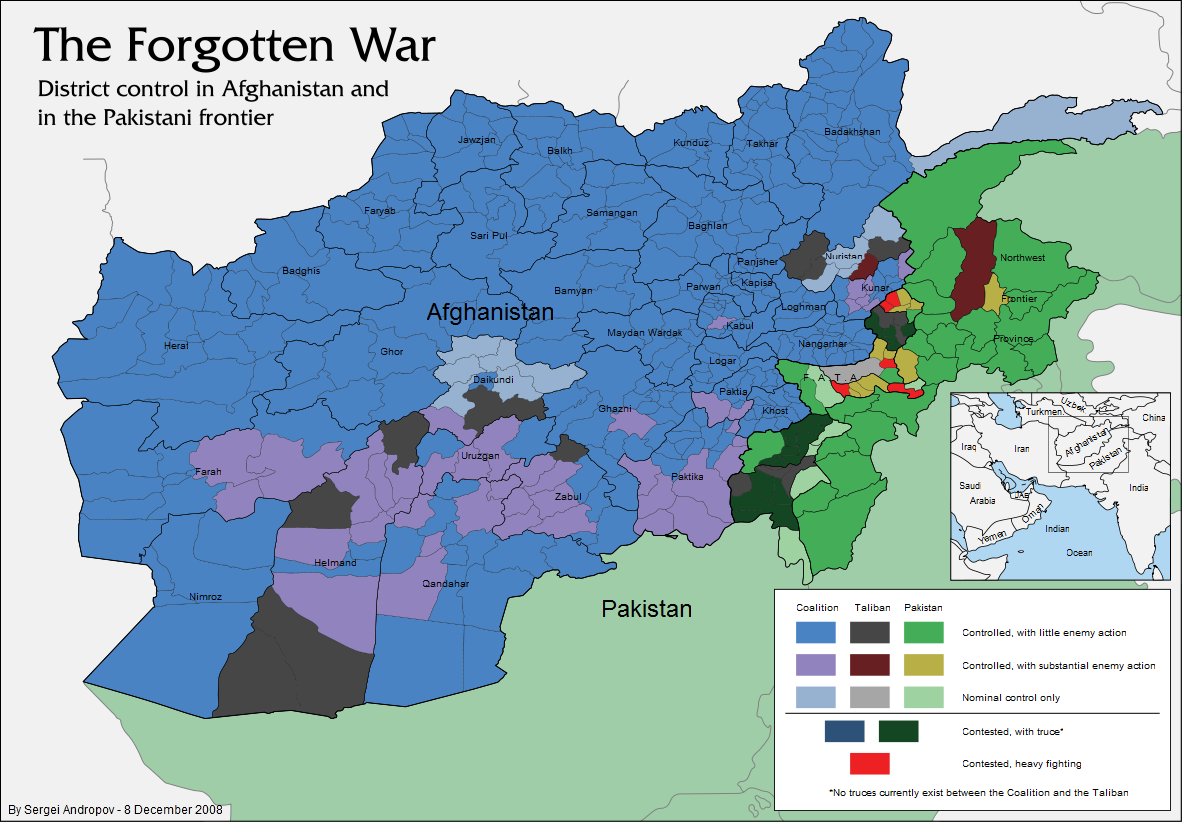Islamabad - Pakistani security forces and armed tribesmen on Monday foiled an attempt by US troops to enter Pakistani territory by firing shots at them, security officials said.
The attacks came as Pakistani forces killed up to 20 Taliban militants in the tribal region bordering Afghanistan.
Two US military helicopters crossed into Pakistan and tried to land near Angor Adda area of South Waziristan tribal district along the Afghan border before dawn, a local security official said.
"But our security forces and the tribesmen who were alert opened fire at them and forced them to flee back to Afghanistan," added the official who spoke on condition of anonymity.
There were conflicting official versions of the attempted US strike.
Pentagon spokesman Bryan Whitman denied the attack on U.S. forces had occurred, saying the Pakistani security official’s statement “didn’t appear to be accurate,” wire reports said.
A senior official in the country's foreign ministry said American ground troops, which were backed by US helicopter gunships, tried to cross over border, but were forced to flee by the tribesmen.
"Pakistani troops did not take part in the action," he said seeking anonymity.
No one was hurt in the incident, which an army spokesman denied took place.
"We completely deny the incident. There was no violation of our border from the Afghan side and therefore there was no question of any firing from our side," Major Murad Khan insisted.
However, he said firing was heard in the area but the army did not know where it had come from and where it was aimed.
A local resident, Sher Ali, said the tribesmen in the Angor Adda area had been on alert since September 3 when US special forces dropped by US helicopters killed more than 20 civilians.
"People had information since Sunday night that the US forces were gathering across the border so thousands of armed tribesmen were guarding their area," he added.
"Good for them (Americans) that they turned back. Otherwise, people were ready to give them the sort of welcome they deserve."
Tension has been brewing between Islamabad and Washington in recent weeks as US forces have increased missile attacks, mostly carried out by drones, at the suspected hideouts of militants who launch cross-border raids on international forces in Afghanistan.
Chairman of the US Joint Chiefs of Staff Admiral Mike Mullen told the US Congress last Wednesday that Washington was planning military operations to eliminate militant sanctuaries in Pakistan.
In response, Pakistan's military chief General Ishfaq Parvez Kayani has vowed to defend the sovereignty and territorial integrity of the country "at all cost."
The US attacks have also fuelled anger among the Pakistani public which is now demanding the new government in Islamabad abandon cooperation with the US in the international fight against terrorism.
But there are no indications that the government, led by the widower of slain Benazir Bhutto, President Asif Ali Zardari, intends to do that. The government has vowed to resolve the issue through diplomacy.
On Tuesday Zardari will meet British Prime Minister Gordon Brown in London to discuss the matter and next week he is expected to see US President George W Bush after he arrives in Washington on an official visit.
Meanwhile, in Bajaur tribal district up to 20 militants died as Pakistani jets, helicopters and artillery pounded positions in Kamangar, Loi Sum and Banda, according to a local security official.
Army spokesman Major Murad said several militant positions were attacked on Monday but the losses had yet to be ascertained.
Via Military.com.
Comment:
At this point, it is extremely difficult to determine what, if anything, happened. In addition to the versions reported above, it has also been claimed that "Pakistani paramilitary soldiers at a checkpoint opened fire into the air and the US troops decided not to continue forward."¹ Sher Ali's claim that the tribesmen had received reports that the US was preparing to launch an attack is almost certainly false, as there isn't anything to speak of on the other side of the border that they could have observed. The BBC version linked to above, which describes the troops as arriving in Chinook helicopters, is more likely to be correct, but even it makes very little sense, as it also says that the Chinooks were accompanied by helicopter gunships, which then just sat there during the actual incursion. The big problem with all of these versions, however, is that they claim that the troops ran away rather than fight. If you're engaging in a military incursion, you're probably ready for some combat.



